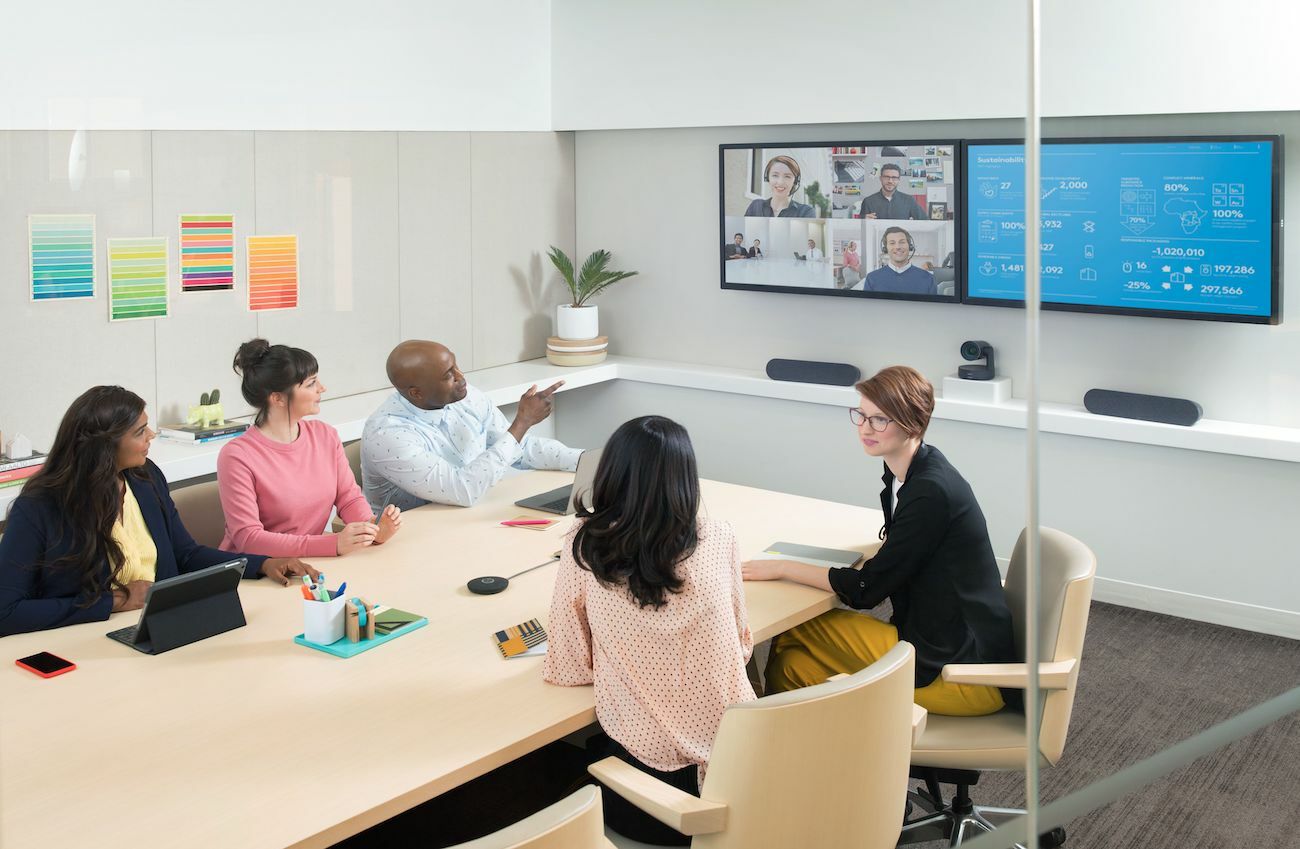Room Design and Engineering
Best in Class Next Generation Meeting Spaces
“The first thing I do is try to get a feel for what right looks like to the customer. Whatever it is, we try to figure out where the starting point is for the customer. I try to build to that, and I try to build not just the design, but even just kind of the documentation that we’re going to hand back to them. We want to build it in a way that makes it easy for them to follow, makes it easy for them to interpret, and then ultimately to sell to whoever they’re selling it to internally.”
—The UC Room Design and Engineering Team
Design starts with understanding the customer’s language.
The most sophisticated design projects with the most specific criteria often start with open-ended conversations. What does this project look like to the customer? What is their vision? What is their definition of success?
By starting off our design and engineering process with a thorough understanding of the language our customer speaks – from vision to culture to vocabulary – we improve our chances of getting the nuances right.

“The first thing I do is try to get a feel for what right looks like to the customer. Whatever it is, we try to figure out where the starting point is for the customer.”
The UC Room Design and Engineering Team
Our design expertise goes beyond best practices and Microsoft UC standards.
As a recent Microsoft Partner of the Year for Meetings, Calling & Devices for Microsoft Teams, we are deeply versed in the UC standards that come with Teams meeting room projects. But our expertise goes beyond what our partners specify, as we’re able to look back across years of successful meeting room design projects that inform how best to bring our customers’ visions to life.
Things like acoustics, lighting, room size and construction all matter deeply when communication and collaboration hinge on seamless meetings and well-designed spaces.
Flexibility creates opportunities.
We believe in giving our customers options – not just on paper, but in 3D and virtual reality (VR). Showing a customer what their meeting room environment will look like via a VR walk-through is far more powerful than all the two-dimensional pictures we could generate.
It’s only then that the customer can often articulate what may not have been clearly communicated earlier in the process. The closer we can come to animating our customers’ visions in different, compelling ways, the closer we get to what’s important – even if it’s hard to put in words.
Our Process
Discovery
Insight
ROM
Proposal
Hand-Off
Does this resonate with you? Book a call below to explore designing the right meeting room environment.
Book a call with us today!
